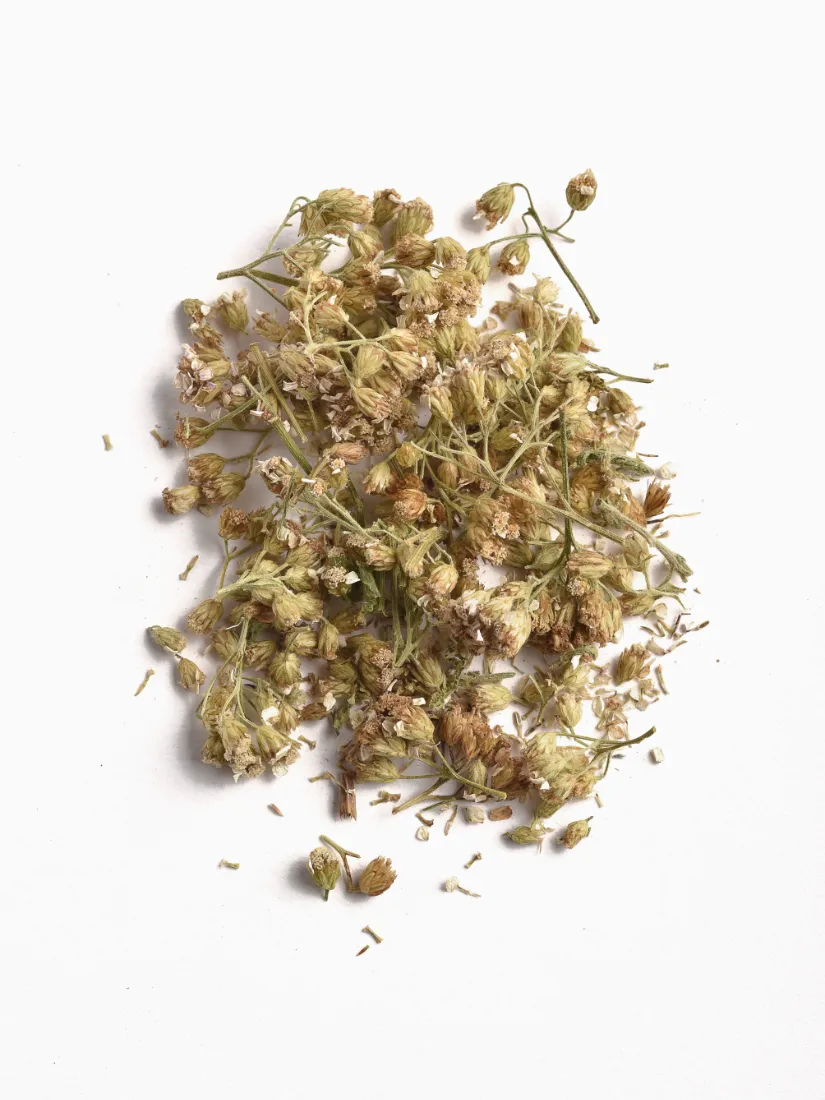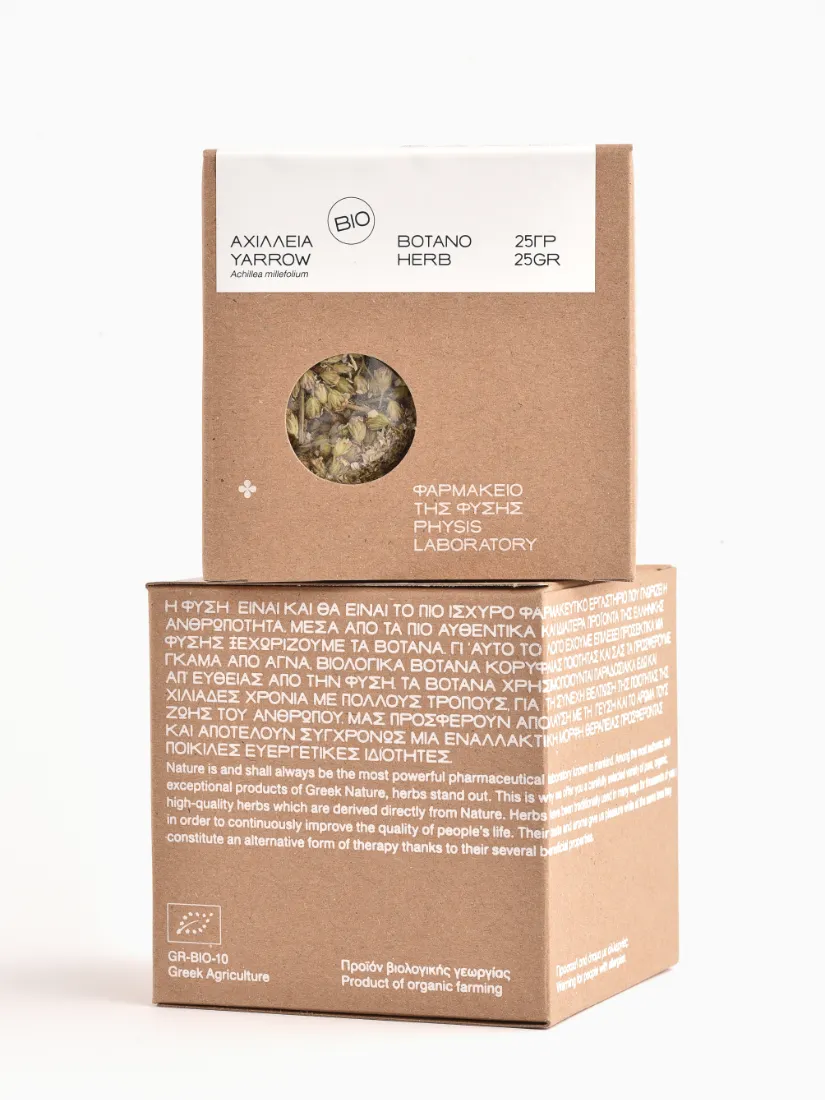The name of the genus Achilles originates from Greek mythology and Achilles, who is believed to have used this particular herb as a wound healer.
-The most efficient parts of yarrow are its flowering tops which are rich in flavonoids (mainly kaempferol, luteolin, and apigenin), phenolic acids, essential oil, and tannins, and due to which it is considered to exert anti-inflammatory, anti-oxidant, and analgesic properties.
-A variety of pharmacological effects are also attributed to yarrow, such as hemostatic, diuretic, antiseptic, antimicrobial, and anxiolytic properties.
-It is believed that Achillea can be used to relieve the symptoms of influenza, the common cold, and other respiratory tract infections, dysmenorrhea, and gastrointestinal disorders such as dyspepsia, diarrhea, stomachache, etc., but also urinary disorders.
-In the form of a decoction, it has also been used externally as a poultice against skin rashes and wounds.
-The aqueous extract of yarrow applied externally in the form of a compress or a bath is considered to be beneficial and a soothing agent for the treatment of skin diseases and mucous membrane inflammations.
-Making gargles could decrease the severity of stomatitis and relieve from its symptoms.
-The aqueous extract of Achillea, containing phenolic acids and flavonoids, it is considered to have antifungal effects against fungi such as Candida albicans.
-Consuming yarrow decoction is also considered to be beneficial for relieving dysmenorrhea symptoms, as it has been found that drinking Achillea tea can relieve the severity of the pain.
-Yarrow extract can be an effective supplement to relieve the symptoms of inflammation of a neurological condition. These properties can be probably explained due to the anti-oxidant, anti-inflammatory and neuroprotective effect exerted by the flavonoids contained in A. millefolium.


